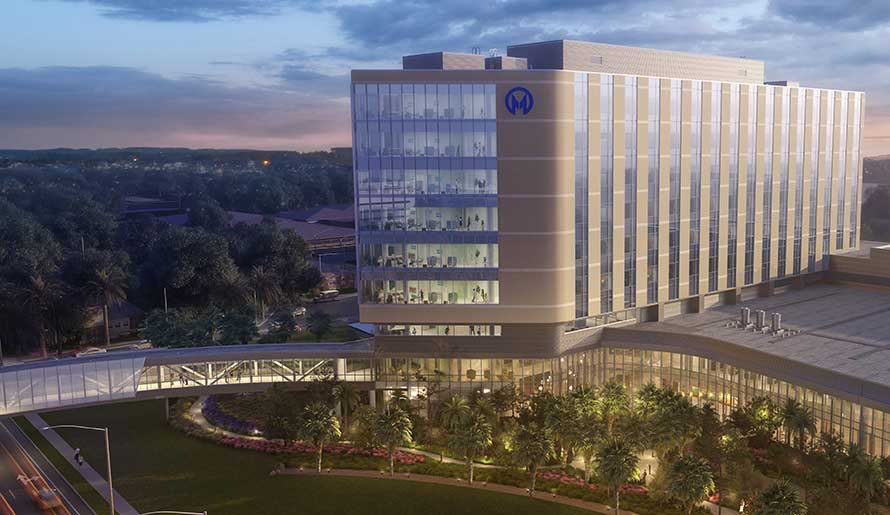What are the Symptoms and Signs of a Brain Tumor?
A brain tumor forms when abnormal cells grow, multiply and accumulate in the brain. Primary brain tumors can develop anywhere in the brain. For instance, pituitary tumors occur in the pituitary gland, medulloblastoma tumors occur in the cerebellum or brainstem and meningiomas occur in the protective lining of the brain (meninges). The symptoms and treatment options can vary depending on the type, location and size of the tumor. Approximately 80% of primary brain tumors are benign.
Secondary (metastatic) brain tumors originate in another part of the body, such as a lung, breast or kidney, and then spread to the brain. Metastasis occurs when cancer cells break away from the primary tumor, enter the bloodstream or lymphatic system and circulate throughout the body to reach distant organs and tissues. Approximately five times more common than primary brain tumors, secondary brain tumors are always cancerous.

What are the early warning signs of a brain tumor?
The initial symptoms of a brain tumor can vary widely depending on its type, size, location and growth rate. In many cases, the first warning sign is a persistent headache, which may occur as a growing tumor presses on sensitive brain tissues.
Common symptoms of a brain tumor
A brain tumor may create pressure within the brain, which can interfere with certain functions and cause noticeable symptoms.
Common brain tumor symptoms include:
- Nausea and vomiting
- Fatigue
- Vision problems, including vision loss and blurred or double vision
- Difficulties with speech, hearing, or swallowing
- Memory loss and confusion
- Impaired balance
- Mood and personality changes
- Seizures
How do brain tumors affect your vision?
When a brain tumor grows, it can put pressure on the optic nerves or the brain's visual pathways, disrupting the signals sent from your eyes to your brain. This can lead to a range of vision problems that vary in severity depending on the tumor's location.
Some of the most common ways a brain tumor affects vision include:
- Pressure on the occipital lobe: The occipital lobe is the area of the brain responsible for processing what you see. A tumor here can cause various sight issues, including blurred vision, sensitivity to light, or blind spots in your visual field.
- Pressure on the brain stem: A tumor affecting the brain stem can lead to double vision, abnormal eye movements, or dizziness due to its role in balance and coordination.
- Pressure on the optic nerve: Vision problems can also occur when a tumor puts direct pressure on the optic nerve, which carries signals from your eyes to your brain.
- Increased intracranial pressure: A tumor can cause pressure to build up inside the skull. This can lead to swelling at the back of the eye, a condition known as papilledema, which can result in loss of vision or other serious sight issues.
Can brain cancer cause blindness?
If a brain tumor exerts enough pressure on the optic nerve, blindness can occur. For many patients, the loss of vision is gradual, beginning with blurry vision, double vision or an increasing blind spot. As the tumor grows, however, it will compress the optic nerve, resulting in greater vision loss. That’s why it’s important to discuss any vision problems with an optometrist or primary care doctor. While it may be scary to bring up this topic, bear in mind that there could be a simple reason behind the vision problems, as brain tumors are relatively rare.
What types of brain tumors affect vision?
Orbital tumors can cause blindness and other vision problems since they grow right in the bony socket that holds the eye as well as the nerves, muscles and connective tissues that control eye movement. Some of the more common orbital tumors include:
- Osteomas
- Sarcomas
- Paranasal sinus tumors
- Fibrous histiocytomas
- Metastatic cancer (cancer that originated in a different location in the body)
How do brain tumors affect memory and speech?
Brain tumors can significantly impact cognitive functions like memory and speech. This happens when a tumor grows in or near parts of the brain responsible for these processes. The frontal lobe and the temporal lobe are both heavily involved in memory formation and language processing.
- A tumor in the frontal lobe can interfere with the thought processes needed for speaking and forming words, leading to difficulties in expressing yourself or finding the right words.
- A tumor in the temporal lobe can cause problems with a person's ability to understand spoken language or recall memories, as this area is crucial for memory storage and language comprehension.
Memory problems
Memory involves three stages—creating a memory, storing the memory and then recalling the memory—and a brain tumor can affect any of those steps. In some cases, people find it difficult to recall memories that were created before a brain tumor developed (referred to as “retrograde amnesia”). In other instances, memory loss involves memories that were created after a brain tumor formed (referred to as “anterograde amnesia”).
Speech problems
A brain tumor can affect communication capabilities in a number of ways, both physical and mental. For example, someone with a brain tumor may have trouble:
- Saying words and producing sounds
- Finding the correct word
- Understanding what other people are saying
- Reading
- Writing
How and why do brain tumors cause seizures?
Seizures are a common symptom of brain tumors, with many patients experiencing at least one. They occur when a tumor disrupts the brain’s normal patterns of electrical impulses, though the exact mechanism isn't fully understood. A tumor can irritate the surrounding brain tissue, causing it to misfire and leading to a seizure.
What is it like to have a seizure caused by a brain tumor?
Brain tumors are sometimes associated with tonic-clonic seizures, which can lead to convulsions and loss of consciousness. More often, though, they are associated with focal (partial) seizures, which can cause:
- Feelings of being absent or “spaced out”
- Feelings of having been in the same place or done the same thing before (déjà vu)
- Feelings of experiencing familiar things for the first time (jamais vu)
- Intense emotions
- Hallucinations and visual disturbances
- Unusual smells or tastes
- Inability to speak or understand speech
- Repetitive movements
- A sensation of limb enlargement
- A rising feeling in the stomach
- Numbness, tingling and burning sensations
- Muscle twitching or stiffness
What makes someone more likely to have a seizure?
Certain individuals with brain tumors are more likely to experience seizures than others. This often has to do with the type of tumor present and its location within the brain. Low-grade tumors, which are slow-growing and less likely to spread, have a greater probability of causing seizures than high-grade, fast-growing tumors. Additionally, brain tumors in the cerebral cortex or meninges are more likely to cause seizures than ones in the cerebellum or brain stem.


Top 1% of Cancer Hospitals
Schedule an AppointmentWhat does a headache from a brain tumor feel like?
A headache caused by a brain tumor might feel like a migraine, sinus pain, eye pain or a tension headache. In many cases, the pain is more pronounced in the morning and worsens with coughing or straining. It can also disrupt sleep.
Symptoms of an advanced brain tumor
As a brain tumor progresses, its symptoms will usually become more pronounced. Additional symptoms may develop if the tumor causes a paraneoplastic syndrome by releasing certain hormones or proteins into the bloodstream. A paraneoplastic syndrome can also occur if the immune system produces antibodies to destroy the brain tumor and those antibodies damage healthy cells.
Paraneoplastic syndromes can cause various symptoms based on the organs and tissues affected:
- Endocrine glands – Elevated blood pressure, weakness and unintended weight gain
- Skin – Itching, redness and benign skin lesions
Benefit from world-class care at Moffitt Cancer Center
The multispecialty team in Moffitt’s highly acclaimed Neuro-Oncology Program takes an individualized approach to diagnosing and treating brain tumors. If you are experiencing brain tumor signs and symptoms, you can request an appointment with a specialist at Moffitt by calling 1-888-663-3488 or submitting a new patient registration form online. We do not require referrals.
